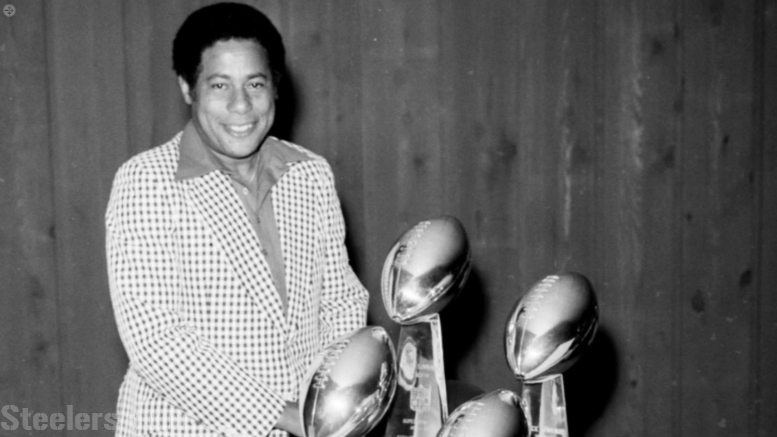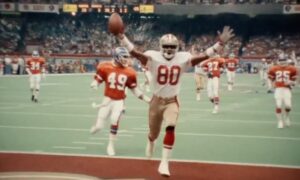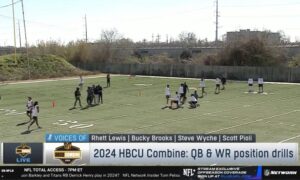The Pittsburgh Steelers were supposed to watch three of their own get enshrined into the Pro Football Hall of Fame in 2020. While it would still be in two separate classes, perhaps in 2021, they can see five members of the Steelers organization go in. Alan Faneca will obviously have a chance. But there is now a growing push to promote the candidacy of the late Bill Nunn, who was integral to the building of the championship rosters of the 1970s.
NFL reporter Jim Trotter had some thoughtful words on this subject, which I want to leave as-is, merely transcribed by me. He is a Hall of Fame voter, and he wants to see Nunn get in this time, arguing that voters have been evaluating him by faulty standards. Here are his remarks, shared yesterday on NFL Network:
I would make the case that he’s long overdue for Canton. When we talk about the Steelers and their dynasty of the 70s, Bill Nunn was instrumental in that success. He spent 35 years with the organization as an assistant personnel director, and also as a part-time scout. Back in the day, before that, he was a sports journalist, he was a sports editor, and he was the managing editor of the Pittsburgh Courier, one of the more influential black newspapers. And what he would do, is each week, he would go to the most important black college football game, he would write about it, and then at the end of the year, he would put together a black college All-America team. And NFL clubs would use that team as sort of a guide to find talent from historically black colleges and universities. Well, the Steelers finally brought him on, and when they did, he became the conduit to some of the greatest talent at the black college level. You mention those three who are in the Hall of Fame. He was also credited with bringing in three fourths of the Steel Curtain—L.C. Greenwood, Ernie Holmes, Dwight White—arguably the greatest defensive line in league history, along with Joe Greene. So when you talk about that, Bill Nunn belongs in the Hall of Fame. The problem is that, for years, and decades, the Hall of Fame voters have been trying to judge him based on the same criteria that they use for the recent general managers, meaning Bill Polian, Ron Wolfe, Bobby Beathard. But the problem is, NFL clubs did not begin hiring African Americans as GMs until 2002, when the late Art Modell promoted Ozzie Newsome. So for that reason, you cannot judge Bill Nunn based on that criteria. You have to judge him based on what he did in the role that he had, and he was extremely influential. One last thing. In the 57-year history of the Hall of Fame, there has never—never—been a person of color inducted as a contributor. You cannot tell me that in the 100-year history of this game, there has not been one person of color who has done something deserving of being in Canton. And for that, among other reasons, I say, Bill Nunn belongs, and this is the year.
Trotter pretty well summarizes Nunn’s legacy with the Steelers, but the other players that they drafted from HBCUs that he helped pick out who went on to the Hall of Fame are John Stallworth, Mel Blount, and Donnie Shell. And another thing to consider about his legacy is his broader impact on scouting as a reporter. Take Roosevelt Brown, who Nunn named to the Courier’s All-America team out of the HBCU Morgan State. A Hall of Famer and a member of the NFL 100 All-Time Team, his being scouted by Nunn helped put him on the New York Giants’ radar. He was drafted in 1953—in the 27th round, pick 321.
We received our first reduction ballot this week for 2021 Contributors candidates for the Pro Football Hall of Fame. Here’s one person I made sure to include on my ballot: Bill Nunn. pic.twitter.com/VRssGAI73j
— Jim Trotter (@JimTrotter_NFL) July 9, 2020
Keep. Preaching. This. Truth! @JimTrotter_NFL https://t.co/oKQn6lOBu4
— Steve Wyche (@wyche89) July 9, 2020








